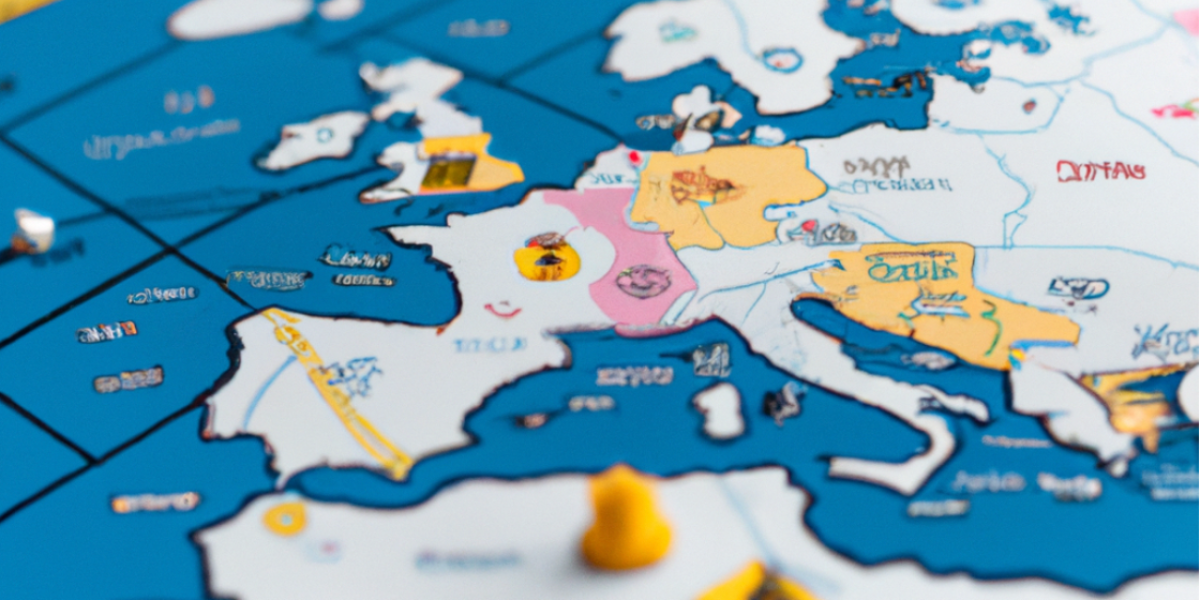The Download: Meta’s diplomatic AI, and China’s online comment censorship
This is today’s edition of The Download, our weekday newsletter that provides a daily dose of what’s going on in the world of technology.
Meta’s game-playing AI can make and break alliances like a human
Meta has created an AI that can beat humans at an online version of Diplomacy, a popular strategy game in which seven players compete for control of Europe by moving pieces around on a map. Unlike other board games that AI has mastered, such as chess and Go, Diplomacy requires players to talk to each other—forming alliances, negotiating tactics—and spot when others are bluffing.
Although Cicero made errors, it’s still a step towards AI that can help with complex problems that require compromise, from planning routes around busy traffic to negotiating contracts. Read the full story.
—Will Douglas Heaven
Read more of our brilliant stories about games and AI:
+ The race to understand the exhilarating, dangerous world of language AI. Hundreds of scientists around the world are working together to understand one of the most powerful emerging technologies before it’s too late. Read the full story.
+ DeepMind’s game-playing AI has beaten a 50-year-old record in computer science. The new version of AlphaZero discovered a faster way to do matrix multiplication, a core problem in computing that affects thousands of everyday computer tasks. Read the full story.
+ DeepMind’s AI can now play all 57 Atari games. But it’s still not versatile enough. Read the full story.
+ Podcast: How games teach AI to learn for itself. Like humans and many animals, AI often learns new skills through play. But unlike the natural world, AI can process years of training in a single day. Read the full story.
The Chinese government is determined to judge online comments
China recently published a draft law on its forthcoming social credit system, which will eventually guide how the country builds it.
The system is intended to promote trustworthiness in business, education, and almost every other aspect of life. How it will actually achieve this is far from straightforward.
One example of the social credit system’s implications—specifically, how it can affect social media and freedom of speech—reveals how the noble-sounding goal of building trust can be problematic in practice. And while the Chinese government is confident in its ability to pass judgments on the trustworthiness of social media posts, other parties are unlikely to agree. Read the full story.
—Zeyi Yang
Zeyi’s story is from China Report, his weekly newsletter covering everything you need to know about China. Sign up to receive it in your inbox every Tuesday.
The must-reads
I’ve combed the internet to find you today’s most fun/important/scary/fascinating stories about technology.
1 Twitter is becoming more dangerous
Elon Musk is tearing down the platform’s safety systems. (WP $)
+ Toxic speech is proliferating as a result. (Wired $)
+ There’s a lot of tweets about tweets at the moment. (The Atlantic $)
+ Twitter’s advertisers are leaving in droves. (WP $)
+ Mastodon is a much quieter, slower place, comparatively. (New Yorker $)
2 Sam Bankman-Fried treated FTX as his “personal fiefdom”
That’s according to the attorney representing the company at its first bankruptcy hearing. (The Guardian)
+ A substantial amount of FTX’s assets are either missing or stolen. (WSJ $)
+ Bankman-Fried’s influence on Washington DC’s crypto policy was undeniable. (Motherboard)
+ He hasn’t done the industry any favors. (New Yorker $)
3 Tax filing sites secretly shared financial data with Facebook
Users’ incomes and scholarship amounts can power Facebook’s advertising algorithms. (The Markup)
4 Americans seem to be tiring of covid vaccines
The fear is that hesitancy could spill over into future outbreaks too. (Vox)
+ Paxlovid refusal is particularly prominent. (The Atlantic $)
5 Twins have been born from embryos frozen 30 years ago
The healthy boy and girl are believed to be the longest-frozen embryos to be born. (CNN)
6 China says it’s “resolved” a video game addiction among children
Thanks to very tight restrictions on how many hours they can play. (FT $)
+ China is buying fewer chip-making machines. (Bloomberg $)
+ Video game addiction is now being recognized—what happens next? (MIT Technology Review)
7 What glucose monitors can teach people without diabetes
We know surprisingly little about blood glucose trends in people who don’t have the condition. (The Verge)
+ A bionic pancreas could solve one of the biggest challenges of diabetes. (MIT Technology Review)
8 How Facebook pivoted away from trash posts
The jury’s out on whether it can regain its cool, though. (WSJ $)
+ The most popular content on Facebook belongs in the garbage. (MIT Technology Review)
9 Most soccer fans hate Virtual Assistant Referee technology
VAR disallowed the World Cup’s very first goal. (The Atlantic $)
+ Saudi Arabia is keen to host the next tournament. (Economist $)
10 Wanted: more bomb-sniffer dogs 
Yet another sector of the US labor market that’s suffering shortages right now. (Wired $)
Quote of the day
“You have witnessed probably one of the most abrupt and difficult collapses in the history of corporate America.”
—James Bromley, an attorney representing FTX, described its downfall during the company’s first bankruptcy hearing, CoinDesk reports.
The big story
Why people still starve in an age of abundance
December 2020
When the Norwegian committee decided to award the 2020 Nobel Peace Prize to the World Food Program, the United Nations’ food assistance agency, the news was greeted with more than a few smirks and eye-rolls.
The WFP, which provides food assistance to people in need, is the largest agency in the UN and has 14,500 employees worldwide. Critics believe it won the prize for simply doing its job—and an extremely narrow interpretation of its job, at that.
After nearly 60 years of trying to end hunger, the WFP is larger and busier than ever before. The world’s farmers produce more than enough to feed the world, and yet people still starve. Why? Read the full story.
—Bobbie Johnson
We can still have nice things
A place for comfort, fun and distraction in these weird times. (Got any ideas? Drop me a line or tweet ’em at me.)
+ Most lists of the best ever tweets are garbage, but this one is pretty good.
+ Beef, beef, beef.
+ These aquariums look super peaceful.
+ Florence Pugh really is the best of British.
+ If you’ve ever wanted to know more about Starbucks’ lettering, wonder no more.




